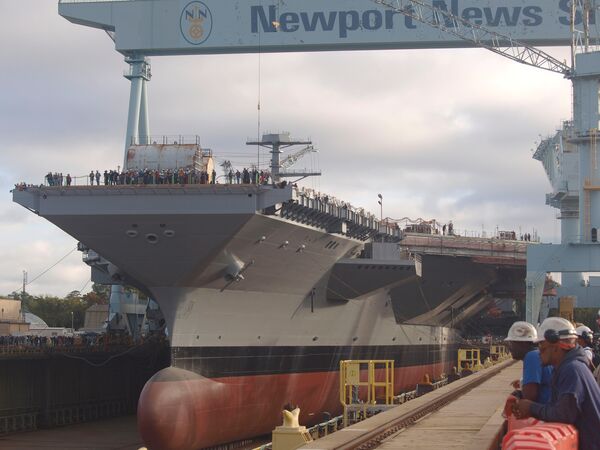
The navy changed its contract type for carrier John F Kennedy to limit the government's liability for overrun costs. (Michael Fabey)
A recent US Government Accountability Office (GAO) report underscores acquisition cost increases for aircraft carrier USS John F Kennedy (CVN 79), but contract provisions address and, in some cases, mitigate those costs, according to the US Navy (USN).
As of September 2021, the navy increased the cost cap for the second Ford-class carrier, John F Kennedy (CVN 79), by USD1.3 billion “primarily due to contract overruns”.
According to the CVN 79 programme office, the GAO said in an 8 June report on major Pentagon acquisitions, “These overruns are mainly due to shipbuilder performance. At over 85% complete, CVN 79 is in a phase of construction when additional cost growth is most likely. Cost growth also resulted from changes for CVN 79 such as shifting to a single-phase delivery schedule and incorporating F-35 modifications, among other things. It is unclear how this updated delivery schedule will affect testing time frames for CVN 79. If the new schedule results in less time for testing in a maritime environment, it will introduce greater risk to the CVN 79 schedule.”
USN spokesman Captain Clayton Doss told Janes , “The principal mechanisms to control shipbuilder costs for aircraft carrier construction are the contract type and associated incentives. CVN 78 (USS Gerald R Ford ) was contracted under a Cost-Plus-Incentive-Fee (CPIF) arrangement where the government assumed a higher responsibility for cost overruns given the risk profile of a first-in-class design and construction effort.”
Looking to read the full article?
Gain unlimited access to Janes news and more...







